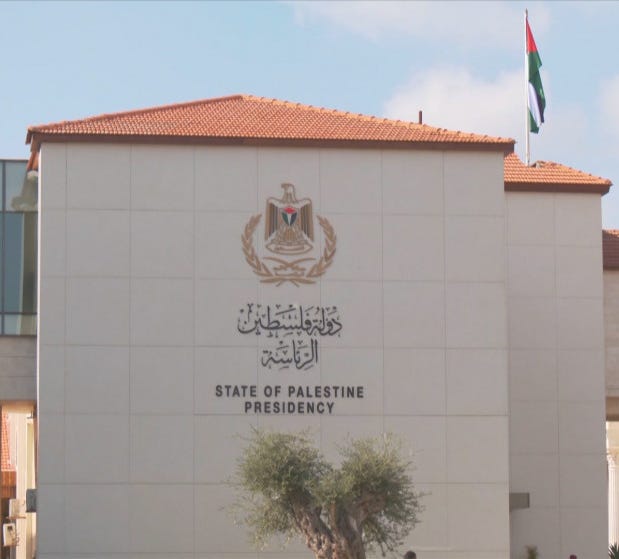Why is Ramallah optimistic about the Trump Plan?
Feels that Gaza without Hamas and Israel favors them
It is hto understand why the Palestinian leadership has warmly welcomed what many feel is a flawed pro-Israeli plan unveiled in Washington by President Trump.
ِAlthough ending the war has always been a Palestinian demand, the plan doesn’t explicitly state a rejection of Israeli annexation of either Gaza or the West Bank. Nor does the text of the plan envision Palestinian statehood, now supported by 80% of UN member states and four-fifths of permanent members of the Security Council.
Yet in interviews given to me, a senior Palestinian source sounded upbeat that if the war ends and Israel withdraws, Gaza will finally be free of both Hamas and the Israeli army. In his eyes, this eventuality will benefit the long-term goals of Palestinian statehood, albeit at a much longer trajectory than many want.
Palestinian leaders welcomed the US announcement of a plan to end the Gaza war, stressing that despite lingering questions about the timeline and lack of direct Ramallah’s involvement, recent international momentum toward recognition of Palestinian statehood has strengthened the Palestinian government’s hand and given it confidence that the proposal could ultimately advance the long-sought goal of independence.
“September was an extremely good month for Palestine,” a high-level official in Ramallah told me, pointing to new recognition of Palestine by France, the UK, Australia, and Canada. “Had the deal in Washington been announced earlier, we would have been in a much worse position. Now we approach it from a position of strength, backed by growing international consensus.”
US President Donald Trump unveiled the plan on Sept. 29 at the White House alongside Israeli Prime Minister Benjamin Netanyahu, calling it “potentially one of the great days ever in civilization.” The proposal envisions an Arab-led international force to oversee Gaza’s security and a technocratic Palestinian committee to run daily governance until the PA “securely and effectively take back control of Gaza” after completing a reform program mandated by Washington and other partners.
The wave of recognition at the UN General Assembly has, in the view of the leadership in Ramallah, cemented a global coalition behind Palestinian statehood. This coalition now extends across Arab, Islamic, and major Western capitals, and the leadership in Ramallah sees the Trump plan as a vehicle through which this coalition can press forward the political pathway to a state.
The official emphasized that the transitional governance provision — under which Gaza will be administered by an “apolitical, technocratic Palestinian committee” — is effectively a bridge for the PLO’s reentry into Gaza. Civil servants already on the Ramallah payroll will continue to staff the bureaucracy, ensuring the application of Palestinian law and reinforcing Ramallah’s leadership’s significant role.
While the Palestinian presidency publicly welcomed the Washington announcement, officials stressed that the Trump plan is still “an outline and a set of principles” awaiting a clear roadmap. What gives Ramallah confidence, they said, is the robust involvement of Egypt, Qatar, Jordan, Türkiye, and other Arab and Islamic partners in the envisioned International Stabilization Force, all of whom have consistently advocated for statehood and for the PLO’s return to Gaza.
As for the 2020 reform conditions stated by Trump in his first term— transparency, ending prisoner stipends, and elections — Palestinian officials dismissed them as an American excuse to avoid giving Ramallah a direct role in Gaza. They note that President Mahmoud Abbas has already committed to reforms, including holding national elections within a year of a Gaza ceasefire, steps that helped secure the recent surge of recognition. Linking reforms to international commitments, officials said, strengthens Ramallah’s incentives to follow through.
On the condition that Washington asks for Palestinians to halt unilateral legal action against Israel, the official told me that Ramallah has no new cases planned for international courts. Past moves, including referrals to the International Court of Justice, were intended to address war crimes by Netanyahu and other Israeli officials. “We are ready to stop unilateral actions if the Israelis stop their own unilateral actions in violation of international law,” he said.
There is no doubt that Ramallah still faces serious challenges — financial strain, the executive sector’s exaggerated role in the absence of legislative checks, and repeated election delays — its leadership believes the current international climate is the most favorable in decades. “The direction of the world community is clear,” the senior official told me. “Global recognition is accelerating, and this plan, with all its imperfections, will ultimately lock in the principle of Palestinian statehood.”


